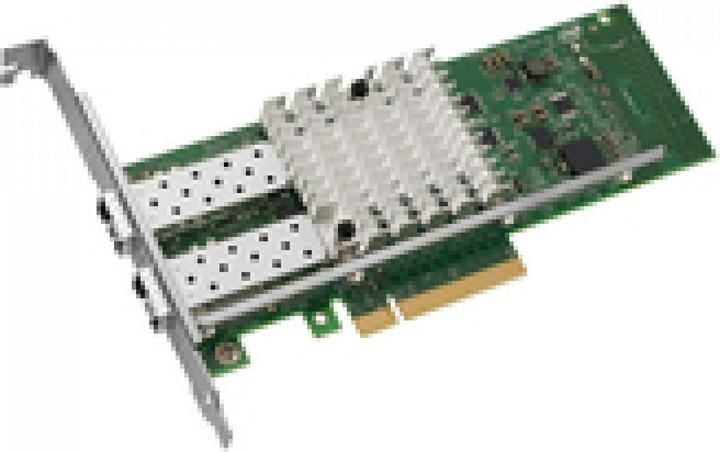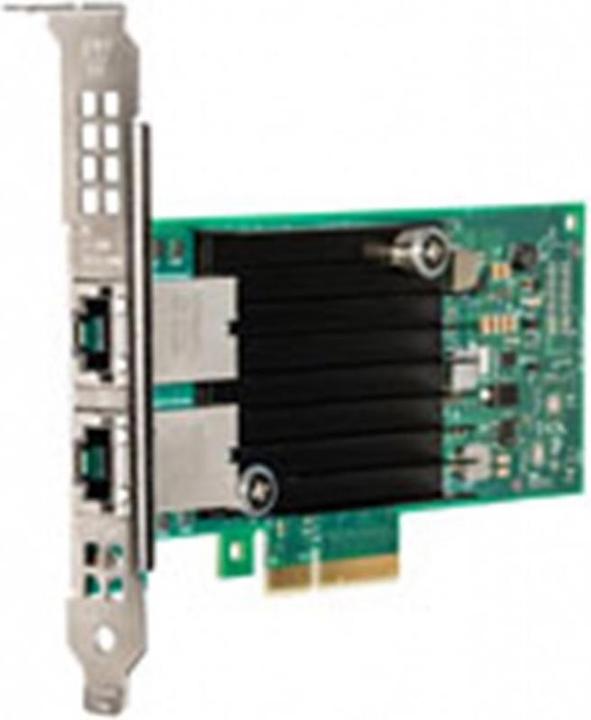
Best selling Network cards from Intel
On this page you'll find a ranking of the best Intel products in this category. To give you a quick overview, we've already ranked the most important information about the products for you.
1. Intel X550T2
Intel Data Direct I/O technology is a platform technology that enhances the efficiency of I/O data processing for the delivery and consumption of data from I/O devices. With Intel DDIO, Intel server adapters and controllers communicate directly with the processor cache, bypassing system memory, which reduces latency, increases system I/O bandwidth, and lowers power consumption.

2. Intel ® Ethernet network adapter E810-CQDA2
IWARP offers converged fabric services with low latency for data centers using Remote Direct Memory Access (RDMA) over Ethernet. The key components of iWARP that ensure low latency are Kernel Bypass, Direct Data Placement, and Transport Acceleration.
The Intel Data Direct I/O technology is a platform technology designed to enhance the efficiency of I/O data processing for data delivery and usage from I/O devices. With Intel Data Direct I/O technology, Intel server adapters communicate directly with the processor cache, bypassing system memory, which reduces latency, increases system I/O bandwidth, and lowers power consumption.
Single Root I/O Virtualization includes the native (direct) sharing of a single I/O resource among multiple virtual machines. This virtualization provides a mechanism through which a single root function (for example, a single Ethernet port) can be represented as multiple separate physical devices.
The Flexible Port Partitioning technique utilizes the industry-standard PCI SIG SR-IOV to efficiently partition the physical Ethernet device into multiple virtual devices and offers Quality of Service by ensuring that each process is assigned to a virtual function and receives an appropriate share of the bandwidth.
Virtual Machine Device Queues is a technique for offloading some switching operations from the virtual machine monitor to network hardware specifically designed for this function. This technique drastically reduces the operating costs associated with I/O switching within the virtual machine monitor, significantly increasing throughput and overall system performance.
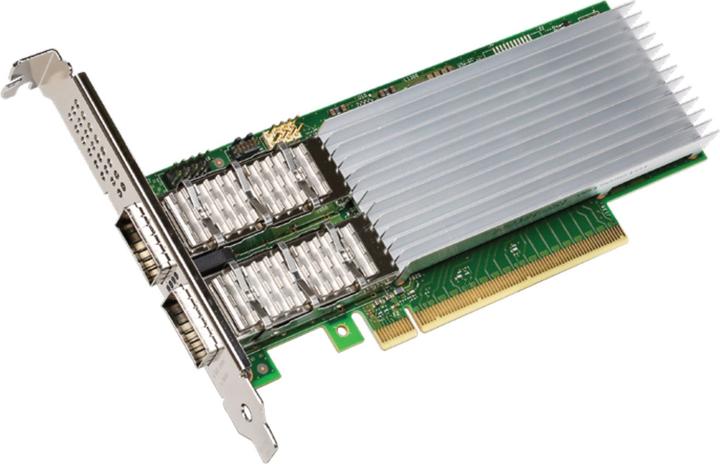
3. Intel Wi-Fi 6E AX210 - Network adapter - M.2 2230 - 802.11ac, 802.11ax (Wi-Fi 6)
The Intel Wi-Fi 6 AX210 is a WLAN and Bluetooth 5.2 adapter in the form of an M.2 2230 module with an A-E key. The adapter simply plugs into an available M.2 slot, enhancing any laptop or PC with fast WLAN and Bluetooth connectivity.
The integrated Intel AX210 chipset enables transmission in both the 2.4 and 5 GHz bands and supports the new 802.11ax standard. It achieves transmission speeds of up to 2.402 Gb/s (5 GHz). With support for 2x2 Wi-Fi 6 technology, the adapter has been certified by the Wi-Fi Alliance with the Wi-Fi 6 certification. In addition to MU-MIMO (Multi-User MIMO), the Wi-Fi 6 AX210 also supports OFDMA (Orthogonal Frequency-Division Multiple Access).
The Intel Wi-Fi 6 AX210 module is also backward compatible with many common WLAN standards: IEEE 802.11 a/b/g/n/ac/ax. Current encryption techniques such as WPA/WPA2/WPA3 ensure high security.
Note: The antenna required for reception is not included in the package and must be purchased separately.
Technical details:
- Form factor: M.2 2230
- Connection: M.2/A-E Key
- Additional connectors: 2x MHF/U.FL antenna connector
- WLAN:
- Standards: IEEE 802.11a/b/g/n/ac/ax
- Frequency bands: 2.4 GHz, 5 GHz, 6 GHz
- Transmission rate: 2.402 Gb/s (5GHz), 574 Mb/s (2.4 GHz)
- Security: WEP 64/128 Bit, WPA, WPA2, WPA3, TKIP, 128-bit, AES-CCMP, 256-bit AES-GCMP
- Features: MU-MIMO, OFDMA
- Bluetooth: 5.2.

Intel Wi-Fi 6E AX210 - Network adapter - M.2 2230 - 802.11ac, 802.11ax (Wi-Fi 6)
M.2 A Key, M.2 E Key
4. Intel Ethernet X710DA2 SVR
Ethernet Converged Network Adapter X710-DA2. With the introduction of the latest 10-gigabit adapters based on the Intel Ethernet Controller X710, Intel continues to uphold its leadership in Ethernet technology. They offer unique virtualization features, flexibility for LAN and SAN solutions, as well as proven, reliable performance characteristics.
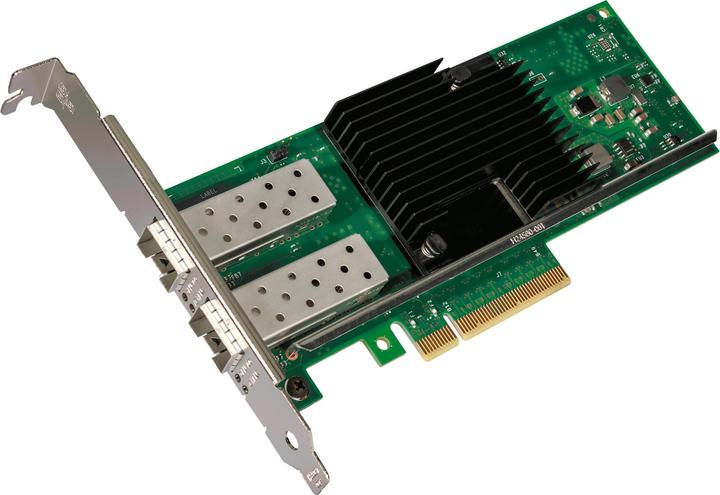
5. Intel ETHERNET ADAPTER I226-T1 SINGLE
The Intel Ethernet Network Adapter I226-T1 provides reliable high-speed connections with a data transfer rate of up to 2.5 Gbit/s, making it a suitable solution for performance-intensive applications. It supports a wide range of network standards and protocols, ensuring compatibility with various devices and network configurations. With features such as auto-negotiation, flow control, and low power consumption, this network adapter not only delivers efficient and stable performance but also contributes to energy savings. Its compliance with numerous regulatory standards highlights its reliability and suitability for use in different environments. Whether for business or personal use, the Intel Ethernet Network Adapter I226-T1 stands out as a versatile and efficient networking solution.
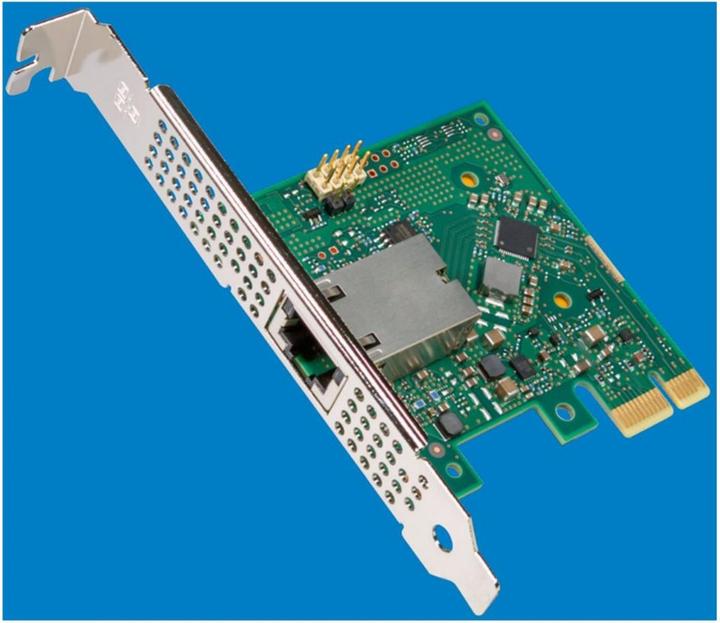
6. Intel Gigabit CT Desktop Adapter
Intel's Gigabit CT desktop adapters offer the latest technology to maximize system performance and increase end-user productivity for PCs with PCI Express (PCIe) slots. These adapters use auto-negotiation to ensure they can utilize the highest available network speed (10, 100, or 1000Mbps) and get full bandwidth performance with the appropriate bandwidth of a PCIe I/O bus to ensure reliable connectivity. Based on the Intel 82574L low-power Gigabit Ethernet controller, these desktop adapters offer optimal performance in an affordable, compact, low-power profile.
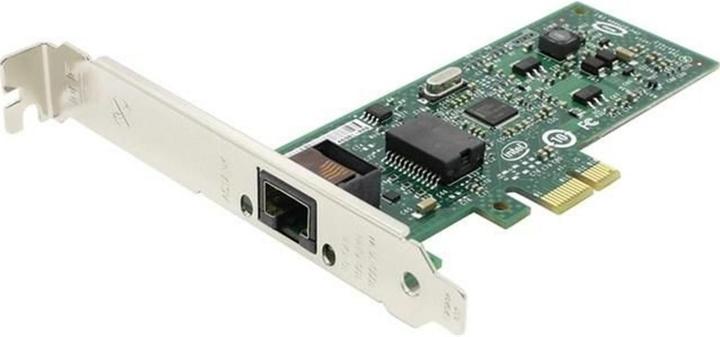
7. Intel E810-XXVDA2
IWARP/RDMA
iWARP offers convergent, low-latency fabric services for data centres through Remote Direct Memory Access (RDMA) via Ethernet. The key iWARP components that ensure low latency are kernel bypass, direct data placement and transport acceleration.
Intel Data Direct I/O Technology
Intel Data Direct I/O Technology is a platform technology that improves the efficiency of I/O data processing for data transfer and utilisation of I/O devices. With Intel DDIO, Intel server adapters and controllers communicate directly with the processor cache without going through system memory, which reduces latency, increases system I/O bandwidth and reduces power consumption.
PCI-SIG SR-IOV capable
Single-Root I/O Virtualisation (SR-IOV) enables the native sharing of a single I/O resource between multiple virtual machines. SR-IOV provides a mechanism by which a single root function (for example, a single Ethernet port) can appear as multiple separate physical devices.
Flexible port partitioning
Flexible Port Partitioning (FPP) technology utilises the industry standard PCI SIG SR-IOV standard to efficiently partition your physical Ethernet device into multiple virtual devices. It provides quality of service by ensuring that each process is assigned to a virtual function and receives a fair share of the bandwidth.
Virtual Machine Device Queues (VMDq)
Virtual Machine Device Queues (VMDq) is a technology developed to offload some of the switching performed in the Virtual Machine Monitor (VMM) to network hardware specifically designed for this function. VMDq significantly reduces the overhead associated with I/O switching in the VMM, which greatly improves the throughput rate and overall performance of the system.
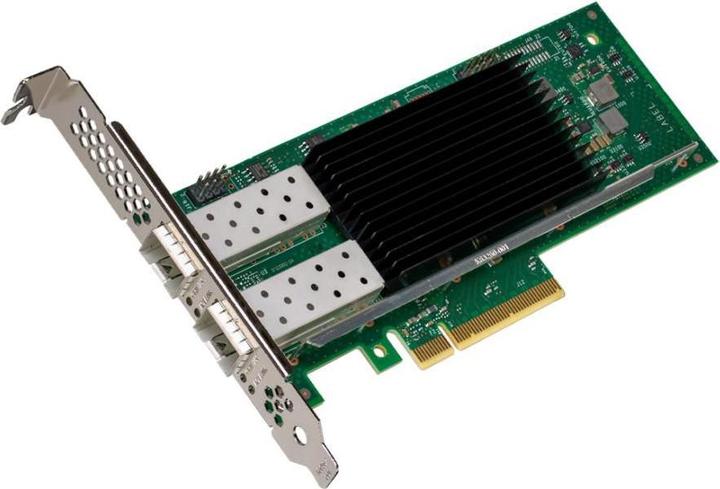
8. Intel Wi-Fi 7 BE201
The Intel Wi-Fi 7 BE201 network adapter is a significant advancement in wireless technology. This expansion card is designed to meet the demands of modern networks, offering advanced connectivity with support for Bluetooth 5.4 and Wi-Fi 7 standards. It ensures a fast, secure, and stable connection, making it the ideal choice for both professional and personal use.
With a data transfer rate of up to 5 Gbit/s, users can enjoy quick file transfers and minimal latency during online activities. Support for multiple encryption algorithms, including WPA3-Personal and Enterprise, provides a secure network environment and protects sensitive data from potential threats. Additionally, technologies such as 2x2 MU-MIMO and Multi-Link Operation (MLO) enhance the efficiency of wireless communication, ensuring smooth streaming and gaming.
Whether upgrading a home network or integrating into a corporate infrastructure, the Intel Wi-Fi 7 BE201 offers a comprehensive solution for fast, secure, and reliable wireless connections.
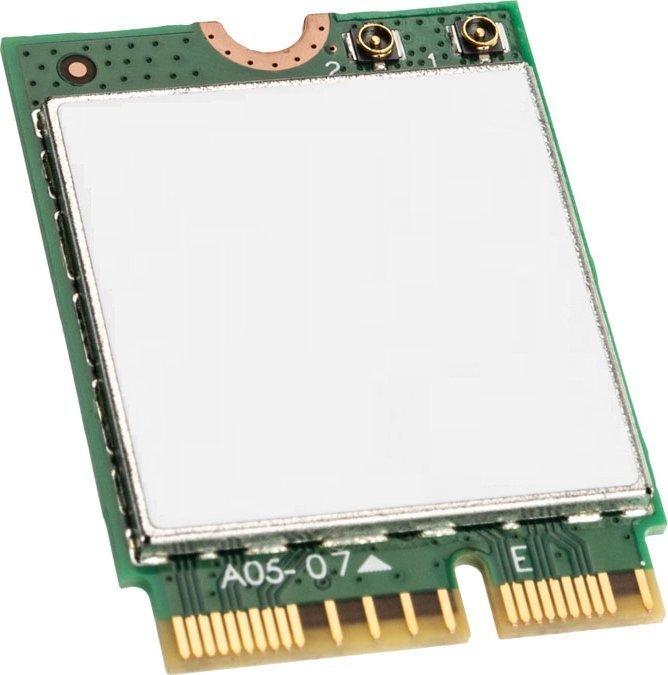
9. Intel Wi-Fi 6 AX200 non vPro
The Intel Wi-Fi 6 AX200 is a Wi-Fi and Bluetooth 5.0 adapter in the form of an M.2 2230 module with an A-E key. The adapter simply plugs into an available M.2 slot, providing any laptop or PC with fast Wi-Fi and Bluetooth connectivity. The built-in Intel AX200 chipset enables transmission in both the 2.4 and 5 GHz bands and supports the 802.11ax standard. It achieves transmission speeds of up to 2.402 Gb/s (5 GHz). With support for 2x2 Wi-Fi 6 technology, the adapter has been certified by the Wi-Fi Alliance with the Wi-Fi 6 certification. In addition to MU-MIMO (Multi-User MIMO), the Wi-Fi 6 AX200 also supports OFDMA (Orthogonal Frequency-Division Multiple Access). The Intel Wi-Fi 6 AX200 module is also backward compatible with many common Wi-Fi standards: IEEE 802.11 a/b/g/n/ac. Current encryption techniques such as WEP (64 Bit and 128 Bit) or WPA/WPA2/WPA3 ensure high security.

10. Intel X520-DA2 (bulk)
This dual-port adapter provides 10 Gigabit Ethernet (10GbE) network performance for bandwidth-intensive applications. A low-profile bracket for installation in 2U systems is included.
